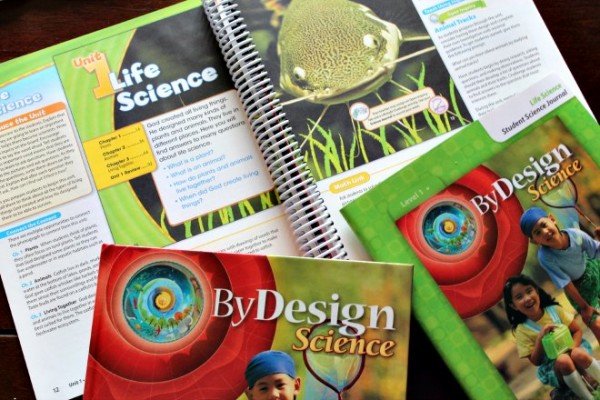· Education · 6 min read
Faith-Filled Homeschooling: 5 Christian Ways to Teach Special Subjects at Home
Discover creative ways to teach special subjects at home in a Christian homeschool setting. Explore science experiments, history lessons, art, music, physical education, and foreign language learning with a Christian perspective.

Faith-Filled Homeschooling: 5 Christian Ways to Teach Special Subjects at Home
Introduction
Homeschooling allows Christian parents to integrate their faith into every aspect of their children’s education. By providing a faith-filled homeschool environment, parents can instill biblical values and nurture their children’s spiritual growth while teaching them special subjects. In this article, we will explore five Christian ways to teach special subjects at home: Christian homeschool science experiments, teaching history from a Christian perspective, incorporating art and music in homeschooling, physical education for homeschooled children, and foreign language learning at home. We will delve into each of these subjects, providing practical tips and resources that align with the values and principles of Christian parenting.
1. Christian Homeschool Science Experiments
Science education plays a vital role in homeschooling, and Christian parents often seek curriculum options that align with their faith. One way to teach science from a Christian perspective is through hands-on experiments that highlight God’s creation. By engaging in these activities, students can develop a deeper understanding of scientific concepts while also recognizing the beauty and intricacy of the natural world.
According to a study conducted by Sonlight Curriculum, an innovative homeschooling program, using living books instead of traditional textbooks is an effective way to make science engaging for children. Living books are narrative-driven texts that present scientific concepts in an engaging and relatable manner. Additionally, incorporating hands-on experiments can further enhance the learning experience. Sonlight Curriculum offers science packages that include fantastic books, biographies, hands-on experiments, and even DVDs such as “InquisiKids Discovery & Do,” which children love watching.
Another notable curriculum option is Elemental Science, which provides hands-on labs and fun activities for preschool students. This curriculum focuses on teaching through experiments, helping students gather information, record their discoveries in notebooks, and ultimately develop a strong foundation in science.
2. Teaching History from a Christian Perspective
Teaching history is an opportunity for Christian parents to impart their faith and values to their children. By presenting historical events through a biblical worldview, parents can help their children understand the importance of God’s role in shaping human history. This approach allows students to study both biblical and church history alongside traditional historical events.
One curriculum that encourages teaching history from a Christian perspective is Basic Christian Education, which utilizes Accelerated Christian Education’s (A.C.E.) curriculum for all subjects, including history. A.C.E. is a Bible-based program developed on the premise that every child is uniquely created by God with distinct abilities and a definite purpose. By integrating biblical teachings into historical studies, children can gain a deeper understanding of how God has worked throughout history.
Another curriculum option is Blessed Homeschool, which offers a four-year study of Ancient, Medieval, Early Modern, and Modern History from a biblical worldview. This curriculum allows students to explore historical events while considering the influence of Christianity as an integral part of history. By studying history through the lens of the Bible, children can develop a comprehensive understanding of how God’s plan unfolds throughout time.
3. Incorporating Art and Music in Homeschooling
Art and music are powerful tools for fostering creativity, self-expression, and spiritual growth in homeschooling. By incorporating these subjects into the curriculum, parents can encourage their children to explore their artistic talents while deepening their understanding of God’s creative nature.
Vibrant Home Life emphasizes the integration of art, science, and spirituality to encourage children to see the beauty in diversity and recognize divine artistry displayed throughout creation. By seamlessly integrating faith and science through hands-on experiments, homeschooling families can create an enriching learning environment that nurtures both creative expression and spiritual development.
Additionally, My Father’s World offers a comprehensive curriculum that incorporates art and music throughout various subjects. This curriculum includes activities such as creating artwork inspired by historical events and studying classical composers to develop an appreciation for music. By integrating art and music into other subjects, children can develop a well-rounded education that cultivates their artistic abilities while also fostering their spiritual growth.
4. Physical Education for Homeschooled Children
Physical education is an essential component of a well-rounded education, even for homeschooled children. It provides an opportunity for children to develop physical fitness, coordination, teamwork skills, and a healthy lifestyle. Christian parents can approach physical education from a faith-filled perspective by emphasizing the importance of stewardship of the body, recognizing it as a temple of the Holy Spirit.
One practical way to incorporate physical education into homeschooling is by participating in community sports programs or joining local homeschooling co-ops that offer physical education classes. These programs often provide opportunities for children to engage in team sports, learn new skills, and develop relationships with peers who share similar values.
Additionally, families can organize outdoor activities such as hiking, biking, or nature walks that combine physical exercise with appreciation for God’s creation. By engaging in these activities together, parents can model healthy habits and foster a spiritual connection with nature.
5. Foreign Language Learning at Home
Learning a foreign language is not only a valuable skill but also an opportunity to embrace cultural diversity and expand one’s worldview. Christian parents can approach foreign language learning from a faith-filled perspective by highlighting the importance of love and respect for people of all nations and languages, as commanded by God.
One effective approach to teaching foreign languages is through immersive methods that expose students to native speakers and authentic cultural experiences. Online platforms like Rosetta Stone and Duolingo offer interactive language courses that can be easily incorporated into homeschooling. These platforms provide engaging lessons, vocabulary practice, and opportunities for conversation with native speakers.
Christian homeschoolers may also consider using resources like Christian-based language textbooks or online courses that integrate faith-based content into language learning. By using these resources, parents can ensure that the language learning experience aligns with their Christian values while still providing a comprehensive and effective education.
Conclusion
In faith-filled homeschooling, parents have the opportunity to teach special subjects in a way that aligns with their Christian values. By incorporating Christian homeschool science experiments, teaching history from a biblical perspective, integrating art and music, providing physical education, and teaching foreign languages at home, parents can nurture their children’s spiritual growth while providing them with a well-rounded education. By utilizing curriculum options and resources that align with Christian principles, parents can create an engaging and enriching homeschool environment that fosters their children’s love for God, knowledge, and personal development.



